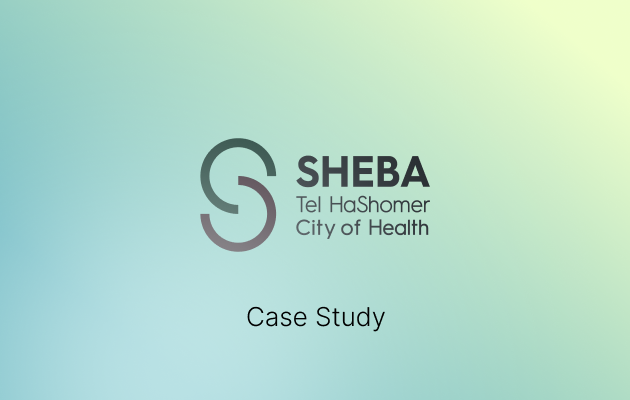Enterprise-Wide Implementation of AI-Powered POCUS at Sheba Medical Center

Enterprise-Wide Implementation at Sheba Medical Center
Transforming Cardiac Care at Scale with AISAP’s AI-Powered POCUS Platform
Overview
Sheba Medical Center, consistently ranked among the world’s top hospitals, set out to modernize its bedside cardiac diagnostics and improve patient care efficiency across its internal medicine division. Partnering with AISAP, Sheba deployed the AISAP AI-powered POCUS platform enterprise-wide - empowering hundreds of clinicians with expert-level bedside cardiac ultrasound capabilities and achieving measurable clinical and financial impact at scale.
Challenge
As a large tertiary care institution with over 1,900 beds and high patient volumes, Sheba faced ongoing challenges:
- Diagnostic bottlenecks delaying patient management decisions
- Extended hospital stays due to delayed imaging
- Over-reliance on full echocardiography labs, creating backlogs and longer wait times
- Missed opportunities for early intervention in cardiac patients
The internal medicine division sought a scalable, clinically-validated solution that would enable every ward to quickly and accurately assess cardiac conditions at the bedside - reducing reliance on overburdened echo lab, while maintaining diagnostic quality.
Solution
Sheba partnered with AISAP to implement its AI-powered POCUS platform throughout the internal medicine division - equipping hundreds of physicians and residents across multiple wards to perform high-quality cardiac ultrasound scans with AI guidance and structured reporting.
The rollout included:
✅ Seamless integration with Sheba’s existing IT and workflow systems
✅ Enterprise-wide training and onboarding
✅ Real-time AI feedback and reporting, enabling confident diagnosis by non-cardiologists
Outcomes
After one year of enterprise-wide adoption with more than 1500 scans, Sheba reported remarkable clinical and financial impact:
📈 Financial ROI
- 2.5x ROI: For every dollar invested in AISAP, the hospital realized 2.5x in income from procedures and cost savings
- Increased revenue through POCUS-driven procedures
- Reduced costs from shorter inpatient stays and more efficient resource utilization
🩺 Clinical Impact
- 30% of cases saw a significant change in clinical management, including:
- Optimization of medical therapy
- New cardiac diagnoses at the bedside
- Early discharges facilitated by faster decision-making
- Timely interventions based on immediate findings
- Reduction in average length of stay (LOS) per patient, translating into increased bed turnover and improved patient flow
- 4% of patients underwent POCUS-driven interventional procedures
- Streamlined downstream care:
- 12% referred for full echocardiography (4% on an ambulatory basis)
- 6% transferred to specialized cardiovascular units (Cardiac Surgery, Cardiology ICU, Cardiac Surgery ICU)
Conclusion
The enterprise-wide deployment of AISAP’s platform at Sheba Medical Center demonstrated how AI-enhanced bedside diagnostics can generate significant clinical and operational benefits - delivering faster, more accurate diagnoses, improving resource allocation, and generating measurable financial returns.
For Sheba, AISAP has become a cornerstone of its cardiac care pathway - enabling internal medicine clinicians to deliver expert-level cardiac diagnostics at scale, transforming patient care in one of the world’s leading hospitals.
